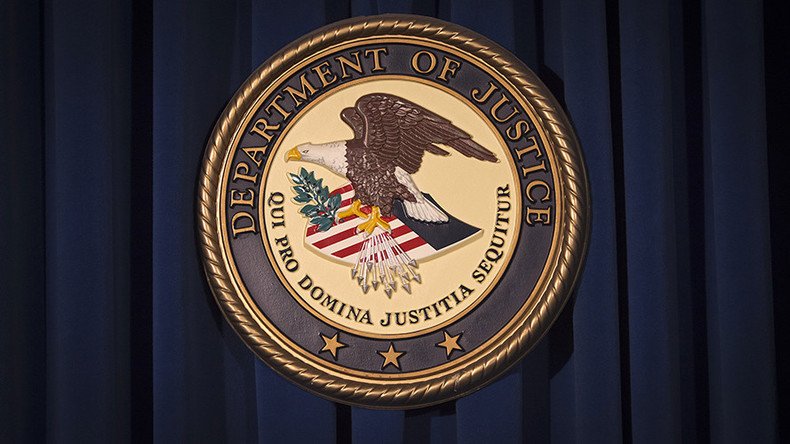‘Key tool’ or policing for profit? DOJ sets new policy on asset forfeiture

The US Department of Justice has announced a new policy on civil asset forfeitures, a controversial program that allows law enforcement to confiscate property of suspected criminals without a trial which critics have dubbed for-profit policing.
Attorney General Jeff Sessions announced the new policy Wednesday, saying it is intended to “better protect victims of crime and innocent property owners” while streamlining procedures to target criminal and terrorist organizations.
“Civil asset forfeiture is a key tool that helps law enforcement defund organized crime, take back ill-gotten gains, and prevent new crimes from being committed, and it weakens the criminals and the cartels,” Sessions said in the announcement.
“In departments across this country, funds that were once used to take lives are now being used to save lives,” he added, citing the use of seized assets to fund vehicles, bulletproof vests, opioid overdose reversal kits, and enhanced training.
The attorney general hinted at the new policy Monday, when he praised the practice of asset forfeiture in a speech to the National District Attorneys Association in Minneapolis, Minnesota.
The new strategy was quickly denounced by critics, ranging from the American Civil Liberties Union (ACLU) to the libertarian Institute for Justice (IJ), which has been crusading against asset forfeiture for years.
“Civil asset forfeiture is tantamount to policing for profit, generating millions of dollars annually that the agencies get to keep,” said Kanya Bennett, legislative counsel for the ACLU. “This program is egregiously at odds with our due process rights.”
“This move will be devastating for all Americans, but especially for communities of color, who are already subjected to unconstitutional violations and over policing,” Bennett said.
Asset forfeiture is opposed by 80 percent of Americans, Bennett added, citing a December 2016 poll by YouGov and the libertarian Cato Institute.
“Civil forfeiture is inherently abusive. No one should lose his or her property without being first convicted of a crime, let alone charged with one,”said IJ senior attorney Darpana Sheth.
“The only safeguard to protect Americans from civil forfeiture is to eliminate its use altogether,” Sheth added, calling the DOJ’s safeguards “little more than window dressing of an otherwise outrageous abuse of power.”
Representative Justin Amash (R-Michigan) voiced his opposition to new forfeiture measure on Twitter.
Civil asset forfeiture is unjust and unconstitutional. It's a big-government scheme to take people's property without due process. End it. https://t.co/6Y2yEtfs8e
— Justin Amash (@justinamash) July 19, 2017
Sessions maintains the new policy seeks to protect the rights of law-abiding Americans, and noted that over the past decade, four out of five forfeitures were never challenged in court.
“Law-abiding people whose property is used without their knowledge or without their consent should not be punished because of crimes that others have committed,” he said Wednesday.
“I am asking Department attorneys to proceed with an abundance of caution when handling all forfeitures involving vehicles and especially residences,” Sessions said in the announcement, adding, that the DOJ was directing all agencies to “prioritize assets that will most effectively advance our overall goal of reducing violent crime.”
The new federal guidelines set “probable cause” as standard for seizing property, and demand state and local law enforcement that wish to partake in the federal Equitable Sharing program to file documents proving the seizure was appropriate and get “enhanced training” on asset forfeiture laws.
Probable cause is a lower standard of evidence than most states already require. It is unclear what impact the policy will have on states like New Mexico, which abolished asset forfeiture, or on states that demand a criminal conviction prior to seizure of property.
The value of assets seized through asset forfeitures has skyrocketed since 2000. According to a Washington Post report, in 2014, the government seized over $5 billion in assets compared to the $3.5 billion in assets stolen from citizens by burglars.
The Obama administration temporarily suspended payments to state and local agencies in December 2015, citing the need to make up for a budget shortfall, but reactivated the program in March 2016.














